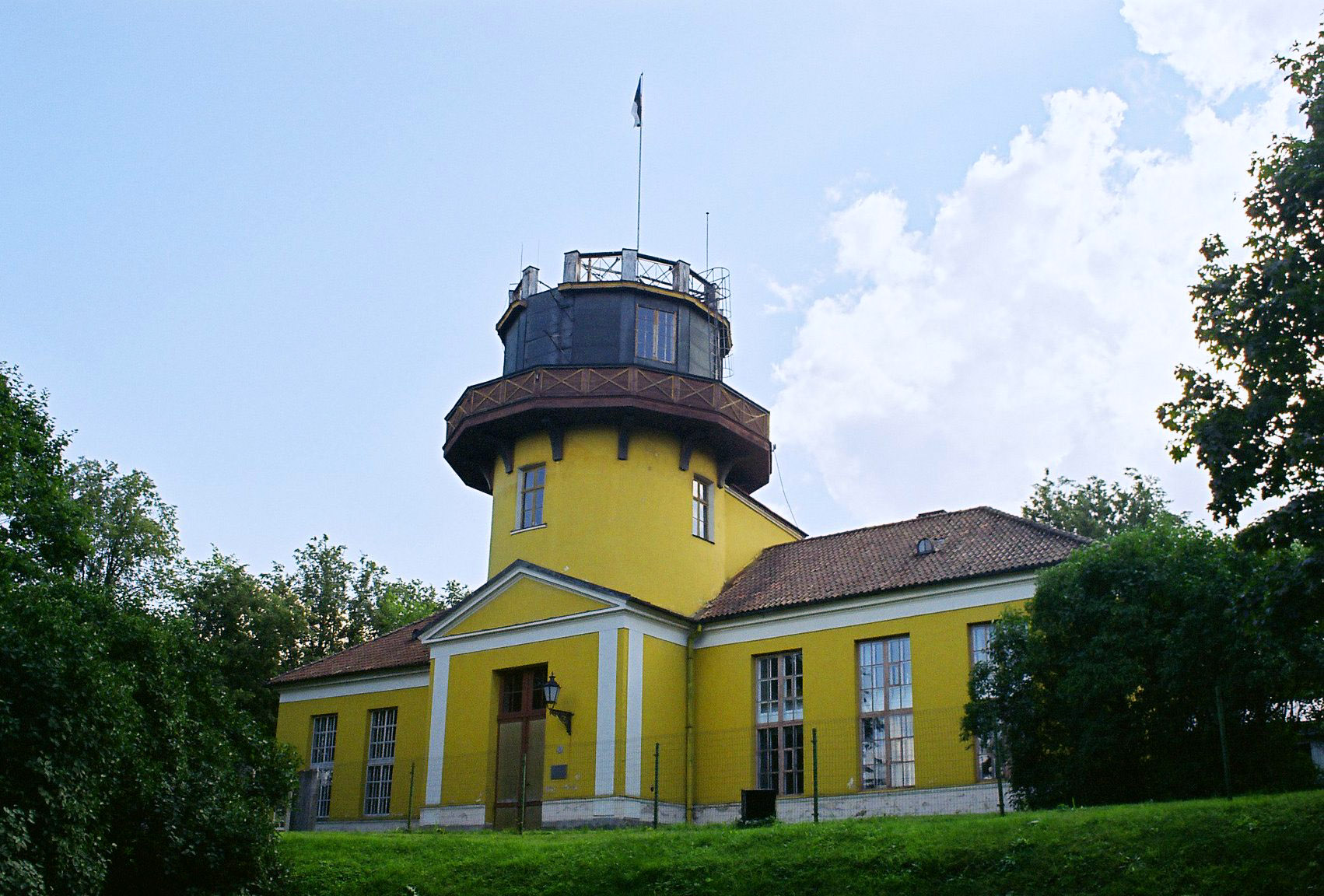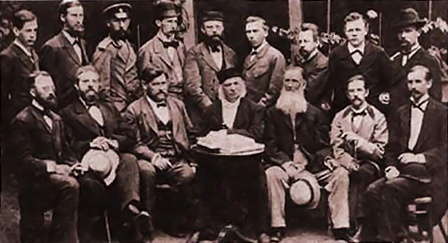|
Grigori Levitski
Grigori Levitski (27 October 1852 Kharkiv – 26 October 1918 St. Petersburg) was a Russian astronomer. In 1879 he graduated from St. Petersburg University. In 1880s he worked at Pulkovo Observatory. 1894-1908 he was the head of Tartu Observatory. 1901-1905 he was the president of Estonian Naturalists' Society. 1903-1905 he was the rector of Tartu University. From 1915 he was the chairman of Russian Astronomical Society. Works * The Histories of the Observatories of Kharkov and Tartu (1894, 1899) * The Lexicon of Professors of Tartu University (1902-1903) References {{DEFAULTSORT:Levitski, Grigori 1852 births 1918 deaths Russian astronomers Scientists from Kharkiv Academic staff of the University of Tartu Rectors of the University of Tartu Saint Petersburg State University alumni ... [...More Info...] [...Related Items...] OR: [Wikipedia] [Google] [Baidu] |
Kharkiv
Kharkiv ( uk, wikt:Харків, Ха́рків, ), also known as Kharkov (russian: Харькoв, ), is the second-largest List of cities in Ukraine, city and List of hromadas of Ukraine, municipality in Ukraine.Kharkiv "never had eastern-western conflicts" ''Euronews'' (23 October 2014) Located in the northeast of the country, it is the largest city of the historic Sloboda Ukraine, Slobozhanshchyna region. Kharkiv is the administrative centre of Kharkiv Oblast and of the surrounding Kharkiv Raion. The latest population is Kharkiv was founded in 1654 as Kharkiv fortress, and after these humble beginnings, it grew to be a major centre of industry, trade and Ukrainian culture in the Russian Empire. At the beginning of the 20th century, ... [...More Info...] [...Related Items...] OR: [Wikipedia] [Google] [Baidu] |
Pulkovo Observatory
The Pulkovo Astronomical Observatory (russian: Пулковская астрономическая обсерватория, Pulkovskaya astronomicheskaya observatoriya), officially named the Central Astronomical Observatory of the Russian Academy of Sciences at Pulkovo, is the principal astronomical observatory of the Russian Academy of Sciences. It is located 19 km south of Saint Petersburg on Pulkovo Heights above sea level. It is part of the UNESCO World Heritage Site Historic Centre of Saint Petersburg and Related Groups of Monuments. It was formerly known as the Imperial Observatory at Pulkowo. Early years The observatory was opened in 1839. Originally, it was a brainchild of the German/Russian astronomer Friedrich Georg Wilhelm von Struve, who would become its first director (in 1861, his son Otto Wilhelm von Struve succeeded him). The architect was Alexander Bryullov. The observatory was equipped with state-of-the-art devices, one of them being the a aperture ref ... [...More Info...] [...Related Items...] OR: [Wikipedia] [Google] [Baidu] |
Tartu Observatory
The Tartu Observatory ( et, Tartu Observatoorium) is the largest astronomical observatory in Estonia. On 1 January 2018, Tartu Observatory was joined again to the University of Tartu, and the observatory is now an institute of the university. It is located on the Tõravere hill, about 20 km south-west of Tartu in Nõo Parish, Tartu County. The old Tartu Observatory located in Tartu city centre, is known internationally for its connection to Friedrich Georg Wilhelm von Struve and the Struve Geodetic Arc, of which it is the first reference point. History The Tartu Observatory was founded at the Imperial University of Dorpat as it was reopened in 1802. The observatory building was completed in 1810 on the Toome hill in Dorpat. The instruments were installed in 1814 by von Struve who subsequently started observations. In 1824, a 9" Fraunhofer refractor arrived, the largest achromatic telescope in the world at the time. When von Struve began assembling his Geodetic Arc in ... [...More Info...] [...Related Items...] OR: [Wikipedia] [Google] [Baidu] |
Estonian Naturalists' Society
Estonian Naturalists' Society ( et, Eesti Looduseuurijate Selts, ELUS) is the oldest Estonia-based society of naturalists. It was founded in 1853, and since establishing has been the major scientific organisation focusing on natural history of Estonia. The Society is based in Tartu. It has been associated with Tartu University and the Estonian Academy of Sciences. The society still operates (2018) and claims to be the oldest scientific society in the Baltic states.History , Estonian Naturalists Society, retrieved 31 December 2013 The Society owns a rich library that is specialised on the publications about . Presidents of the Society * Carl Eduard von Liphardt (1853–1862) *[...More Info...] [...Related Items...] OR: [Wikipedia] [Google] [Baidu] |
Tartu University
The University of Tartu (UT; et, Tartu Ülikool; la, Universitas Tartuensis) is a university in the city of Tartu in Estonia. It is the national university of Estonia. It is the only classical university in the country, and also its biggest and most prestigious university. It was founded under the name of ''Academia Gustaviana'' in 1632 by Baron Johan Skytte, the Governor-General (1629–1634) of Swedish Livonia, Ingria, and Karelia, with the required ratification provided by his long-time friend and former student – from age 7 –, King Gustavus Adolphus, shortly before the king's death on 6 November in the Battle of Lützen (1632), during the Thirty Years' War (1618–1648). Nearly 14,000 students are at the university, of whom over 1,300 are foreign students. The language of instruction in most curricula is Estonian, some more notable exceptions are taught in English, such as semiotics, applied measurement science, computer science, information technology law, and E ... [...More Info...] [...Related Items...] OR: [Wikipedia] [Google] [Baidu] |
Russian Astronomical Society
The Russian Astronomical Society (russian: Русское астрономическое общество was a society established in Saint Petersburg, Russia in 1891 for the promotion of astronomy related studies. In 1894 the society also started publishing the scientific "Journal of the Russian Astronomical Society" (russian: Известия Русского астрономического общества) In 1932 the Society was transformed into the Unional Astronomical and Geophysical Society. See also * List of astronomical societies A list of notable groups devoted to promoting astronomy research and education. Africa * African Astronomical Society South Africa *Astronomical Society of Southern Africa Asia China * Chinese Astronomical Society India * Akash Mitra Mandal *A ... References Astronomy organizations Scientific societies based in Russia Organizations established in 1891 Organizations disestablished in 1932 Astronomy in Russia {{Astronomy- ... [...More Info...] [...Related Items...] OR: [Wikipedia] [Google] [Baidu] |
1852 Births
Year 185 ( CLXXXV) was a common year starting on Friday (link will display the full calendar) of the Julian calendar. At the time, it was known as the Year of the Consulship of Lascivius and Atilius (or, less frequently, year 938 '' Ab urbe condita''). The denomination 185 for this year has been used since the early medieval period, when the Anno Domini calendar era became the prevalent method in Europe for naming years. Events By place Roman Empire * Nobles of Britain demand that Emperor Commodus rescind all power given to Tigidius Perennis, who is eventually executed. * Publius Helvius Pertinax is made governor of Britain and quells a mutiny of the British Roman legions who wanted him to become emperor. The disgruntled usurpers go on to attempt to assassinate the governor. * Tigidius Perennis, his family and many others are executed for conspiring against Commodus. * Commodus drains Rome's treasury to put on gladiatorial spectacles and confiscates property to su ... [...More Info...] [...Related Items...] OR: [Wikipedia] [Google] [Baidu] |
1918 Deaths
This year is noted for the end of the World War I, First World War, on the eleventh hour of the eleventh day of the eleventh month, as well as for the Spanish flu pandemic that killed 50–100 million people worldwide. Events Below, the events of World War I have the "WWI" prefix. January * January – 1918 flu pandemic: The "Spanish flu" (influenza) is first observed in Haskell County, Kansas. * January 4 – The Finnish Declaration of Independence is recognized by Russian Soviet Federative Socialist Republic, Soviet Russia, Sweden, German Empire, Germany and France. * January 9 – Battle of Bear Valley: U.S. troops engage Yaqui people, Yaqui Native American warriors in a minor skirmish in Arizona, and one of the last battles of the American Indian Wars between the United States and Native Americans. * January 15 ** The keel of is laid in Britain, the first purpose-designed aircraft carrier to be laid down. ** The Red Army (The Workers and Peasants Red Army) ... [...More Info...] [...Related Items...] OR: [Wikipedia] [Google] [Baidu] |
Russian Astronomers
This list of Russian astronomers and astrophysicists includes the famous astronomers, astrophysicists and cosmologists from the Russian Empire, the Soviet Union and the Russian Federation. Alphabetical list __NOTOC__ A *Tateos Agekian, one of the pioneers of Russian and world Stellar dynamics, discoverer of two evolutionary sequences of stellar systems: nearly spherical and strongly flattened *Vladimir Albitsky, discovered a significant number of asteroids *Viktor Ambartsumian, one of the founders of theoretical astrophysics, discoverer of stellar associations, founder of Byurakan Observatory in Armenia *Andrejs Auzāns, director of the Tashkent observatory, 1911-1916 B *Nikolai P. Barabashov, co-author of the ground breaking publication of the first pictures of the far side of the Moon in 1961, called ''Atlas of the Other Side of the Moon''; a crater and a planet were named after him *Vladimir Belinski, an author of the BKL singularity model of the Universe evolution *Igor ... [...More Info...] [...Related Items...] OR: [Wikipedia] [Google] [Baidu] |
Scientists From Kharkiv
A scientist is a person who conducts scientific research to advance knowledge in an area of the natural sciences. In classical antiquity, there was no real ancient analog of a modern scientist. Instead, philosophers engaged in the philosophical study of nature called natural philosophy, a precursor of natural science. Though Thales (circa 624-545 BC) was arguably the first scientist for describing how cosmic events may be seen as natural, not necessarily caused by gods,Frank N. Magill''The Ancient World: Dictionary of World Biography'', Volume 1 Routledge, 2003 it was not until the 19th century that the term ''scientist'' came into regular use after it was coined by the theologian, philosopher, and historian of science William Whewell in 1833. In modern times, many scientists have advanced degrees in an area of science and pursue careers in various sectors of the economy such as academia, industry, government, and nonprofit environments.'''' History The ... [...More Info...] [...Related Items...] OR: [Wikipedia] [Google] [Baidu] |
Academic Staff Of The University Of Tartu
An academy (Attic Greek: Ἀκαδήμεια; Koine Greek Ἀκαδημία) is an institution of secondary or tertiary higher learning (and generally also research or honorary membership). The name traces back to Plato's school of philosophy, founded approximately 385 BC at Akademia, a sanctuary of Athena, the goddess of wisdom and skill, north of Athens, Greece. Etymology The word comes from the ''Academy'' in ancient Greece, which derives from the Athenian hero, ''Akademos''. Outside the city walls of Athens, the gymnasium was made famous by Plato as a center of learning. The sacred space, dedicated to the goddess of wisdom, Athena, had formerly been an olive grove, hence the expression "the groves of Academe". In these gardens, the philosopher Plato conversed with followers. Plato developed his sessions into a method of teaching philosophy and in 387 BC, established what is known today as the Old Academy. By extension, ''academia'' has come to mean the accumulation, dev ... [...More Info...] [...Related Items...] OR: [Wikipedia] [Google] [Baidu] |








